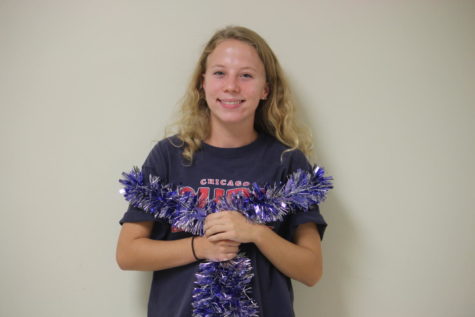Village of La Grange has marijuana debate
September 21, 2018
The legalization of marijuana has been a trending topic in the U.S. for the past decade. So far, eight states and Washington D.C. have legalized recreational use of marijuana, and 23 have legalized medical marijuana. The debate recently became local.
“The Great Marijuana Debate” was held on Aug. 28, 2018, at the LaGrange Town Hall auditorium at 7 p.m. The Debate was organized by the League of Women Voters of the LaGrange Area and The Coalition for Drug Free Lyons Township.
“Our goal was to get information that was accurate and up to date to citizens so they can make up their own mind,” President of the Coalition for Drug Free LT Cindy Frymark said. “I think we accomplished that goal.”
The panel was evenly split between three anti-legalization and three pro-legalization advocates. The anti-legalization side consisted of Will Jones, the Communication and Outreach Associate of Smart Approaches to Marijuana (SAM), Illinois Representative Jim Durkin, and Dr. Aaron Weiner, a Licensed Clinical Psychologist and Director of Addiction Services at Linden Oaks Behavioral Health in Illinois. The pro-legalization panelist consisted of Senator Heather A. Steans, Reverend Al Sharp, Executive Director of Clergy for a New Drug Policy, and Chelsea Laliberte, founder and executive director of Live4Lali.
At the beginning of the debate, each member gave a brief introduction about themselves and their position on the legalization of recreational marijuana in Illinois. Volunteers then collected questions from the audience and the moderator Thom Sanders presented the questions to the panel.
“This is such a relevant topic of discussion, it was important for those who went because they got more insight on what the debate was really about and how legalization can change a lot,” Fiona Sullivan ‘21, a student that attended the debate, said.
The debate overall steered toward two main topics legalization and commercialization of recreational marijuana. The two hour discussion revolved around debating the bill that Illinois senate is drawing up. An advisory referendum on the legalization of recreational marijuana for people 21 and older will be on November’s ballot.
Jones and the organization SAM believe that marijuana should be decriminalized, but oppose the commercialization of the industry based on the effects it will have on communities.
“Legalization and introducing an industry that is going to profit disproportionately off of communities [of] color is not the answer for marijuana policy moving forward,” Jones said.
Weiner provided data that stated that marijuana affects different people different ways because it affects the brain, unlike alcohol that goes through a standard digestive process.
“There is no effective .08 for marijuana [like there is for alcohol],” Weiner said. “There are studies coming out that show any THC in the blood even 24 hours afterward can impair driving.”
The main arguments for the pro-side revolved around the idea that legalization would lead to better regulation of the marijuana, and that it would bring in revenue for the state. Both sides agreed that recreational marijuana should not be available for minors.
“I think [the legalization of recreational marijuana] is the right sound public policy,” Steans said. “I did a lot of research and spoke to a lot of folks, and I have very much come to the belief that prohibition simply does not work.”
Possession of marijuana has already been decriminalized in Illinois since June 2017, Durkin said. A person will not be prosecuted if caught with small amounts marijuana.
The youth task force of The Coalition for Drug Free Lyons Township is hoping to plan a similar debate for LT, Frymark said. The plans are still in the early stages.
“I think that drug use is becoming more normalized for students at LT,” Julie Bryar-Smith, a social studies teacher and member of the Coalition for Drug Free Lyons Township, said. “I think that students need to see data about the consequences of substance misuse.This issue has very real consequences for their lives and for their futures here in Illinois. They are going to be voting on this. The more informed students are with real data the better their vote will be because it won’t just be on emotions and what sounds good at the moment.”



















![Movie poster for '[Rec]" (2007).](https://www.lionnewspaper.com/wp-content/uploads/2023/04/rec-640x900.jpg)


